
Ashley Cook
June 28, 2021
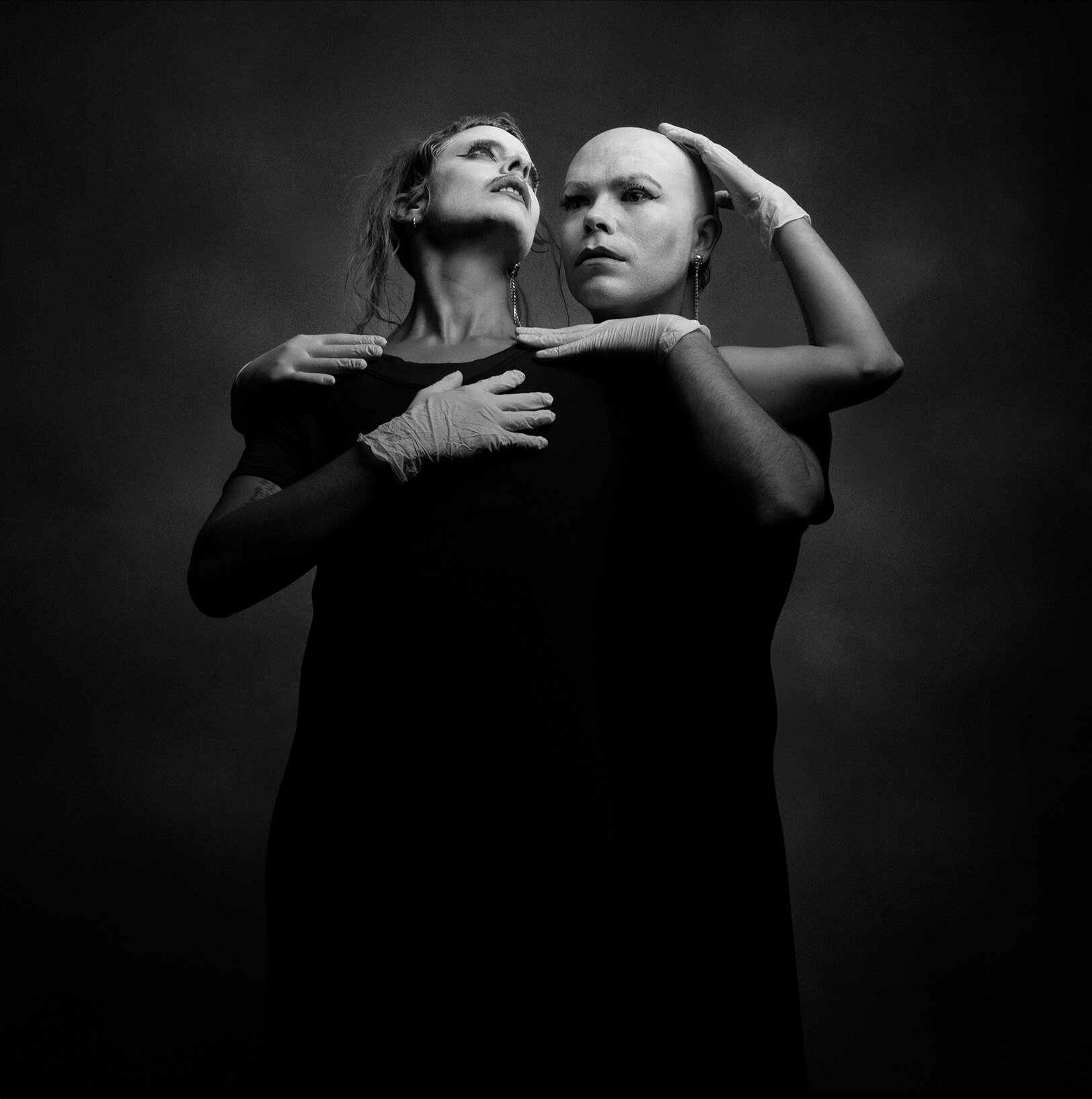
An audible amalgamation is spawned from the minds and work of Matthew Ryan Surline (MRS) and Walken Schweigert in their music ensemble Crune that unites the aesthetics of Baroque and Disco into an immersive listening and entertainment experience. With a primary inspiration of Baroque music laying the foundation for decision making behind their music, the act of bringing this classical era into the contemporary further entertains the character of this era, which was an expansion of musical possibilities with more complex compositions, innovation and experimentation.
Detroit actively functions as a hub for raw and expansive experimentation, with one area in particular being the realm of theatre and performance art. The events and lifestyles of they who make up this local scene, which is a micro of a grander national and international culture, oscillate consistently between the historical aesthetics of the circus, dark fantasy and the occult. With both Walken and MRS having participated in this culture in various capacities since an early age, it was natural for these elements to make their way into the development of the music and imagery produced by Crune. Just as the elaborate events by Theatre Bizarre or a performance by Satori Circus, Crune has developed the ability to present a potent surrealistic world which is realized not only through their music, but through the costume, make up, imagery and environment in which they position themselves.
The seed of this Baroque/ Disco vision originated when producer Dylan Wade remixed the song Gates of Burning Hell by the Detroit based rock band Bride Stripped Bare. MRS, being one half of this band at the time, was inspired and prompted to explore further the kind of music they were interested in creating, which was always lingering in the realm of a twisted form of classical music. While still in Bride Stripped Bare, MRS was trying to explore the use of Baroque music while producing dance music using synthesizers and encouraging the band to lean into disco beats and more disco influenced riffs, “but honestly we were just really young and not very good at it yet.”
Walken had previously developed a similar desire to make dance music with classical influence and this was evident in their first collaboration. After Bride Stripped Bare disbanded and MRS met Walken, who is now the co-composer in Crune, MRS invited Walken to bring their “violin over to the studio and the first time that we sat down in the studio for a few hours, we wrote the main riff for the song ‘Flaming Coffin, which is on our first album Witch Pop. It was amazing how we just wrote that the first time we ever sat down in the studio; we immediately realized that the chemistry was explosive! Coming from a completely different theatre background and coming from a completely different part of the country as well, it was interesting because we were both looking for a mode to make dance music that also embodies queer expression, that also embodies a love for horror genres, which is super niche. I mean, I am always surprised that anyone even likes it, you know what I mean...haha. It is not for everybody, but when people come to our shows, they dance and look like they’re having a good time. I am a non binary person, Walken is a trans man, and we are definitely building communities and queer spaces and as queer people, it definitely speaks to queer audiences.”
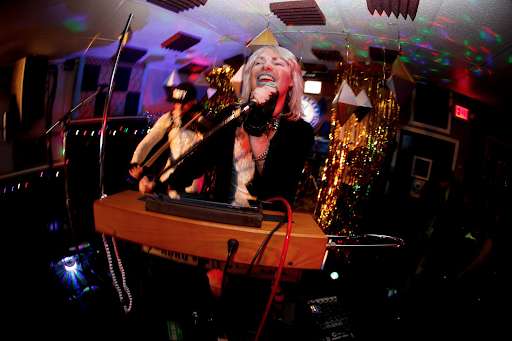
“The name of the band Crune comes from my most natural inclination to sing sad piano ballads. People would always tell me that I am crooning, as a style. And before we even wrote any of the music, as it was developing, first it was sad ballads because that was really where my heart was at the time and I was going through some...sad ballad-y shit...Sometimes the world needs things you can just cry to....I saw this meme the other day that said ‘sometimes you have to play the song again because it didn’t hurt enough’. I definitely am trying to make music that stirs that kind of emotion.”
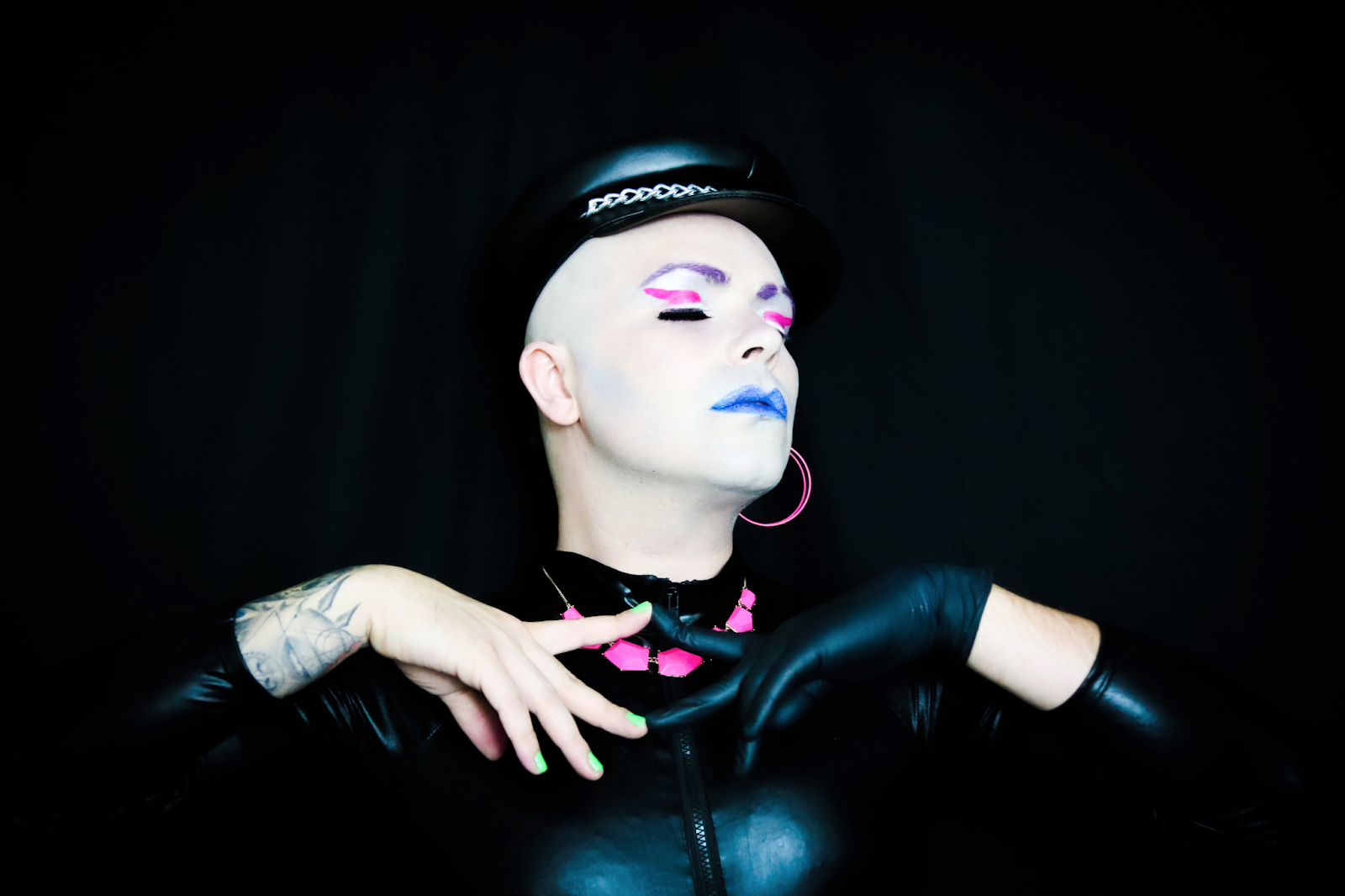
The name of this first album also acted as a description for the music encapsulated by it. “It sounds very much like what it’s titled. It’s poppy, it’s dance music, it’s witchy.” With MRS living in Detroit and Walken living on a farm on the other side of Wisconsin, the album was born of a unique long distance collaboration. When MRS visited the farm to work with Walken, a lot of the songs that were conceptually created in Detroit were finalized and recorded on the farm. The length of time spent between 2017 and 2019 developing and finalizing the album allowed MRS and Walken to really understand how to develop the sound and world they wanted to create, which utilizes the effects of layering of sounds and coexistence of voices to tell stories through dynamic song evolution and unexpected techniques that illustrate the characteristics and personality of Crune.
They also make portraits and create galleries that function in tandem with the music of the album. “It’s very much a place you go.” Making visual representations that populate that space with characters is one way that they invent an interactive world. Costume, face paint and make up, particularly white colored face paint was a theme in this album. “Witch Pop is meant to feel cold. Like you’re undead in a certain way. Like you kind of left your humanity and went to a different place.” They used the white to illustrate that effect and also as a tool to make the other makeup pop. But, reflecting on the music and the Baroque influence, the white face paint acted as a reference to marble sculpture while also attempting to mock the aristocracy. A lot of the images and iconography used in Witch Pop is based on aristocratic paintings and catholic iconography as well.
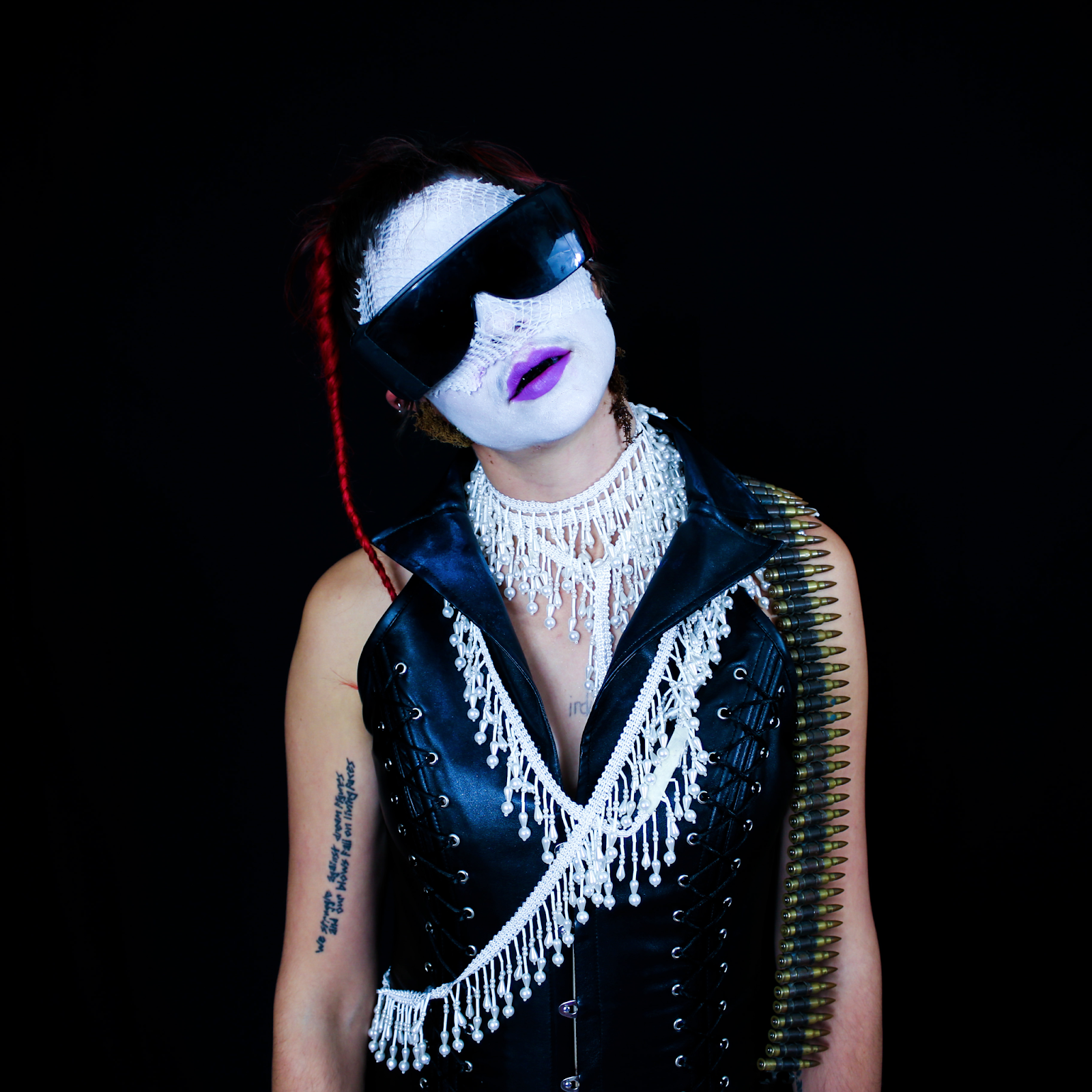
Living on a farm also definitely influenced the sound of this album, but you can actually hear more influence of the farm on Crune’s second album Necromantik. With a more orchestra pit vibe, things like the cello, viola and kettle drums lean more towards Baroque music than disco. The title of this second album is a play on words, referencing necromancy, which is a magical art of bringing people back from the dead. Walken’s theatre company Open Flame Theatre out of Minneapolis has been collaborating with Crune over the past year to develop an opera; Crune is scoring this opera with a rendition of Necromantik, which was also composed between Sound House in Hamtramck and the farm in Wisconsin. “The opera will be performed outdoors, on the farm where it was written. Originally it was supposed to be at the Southern Theatre in Minneapolis which is a beautiful Gothic theatre, but for now it is planned for the last weekend of September 2021 and the first weekend of October 2021 on the farm.”
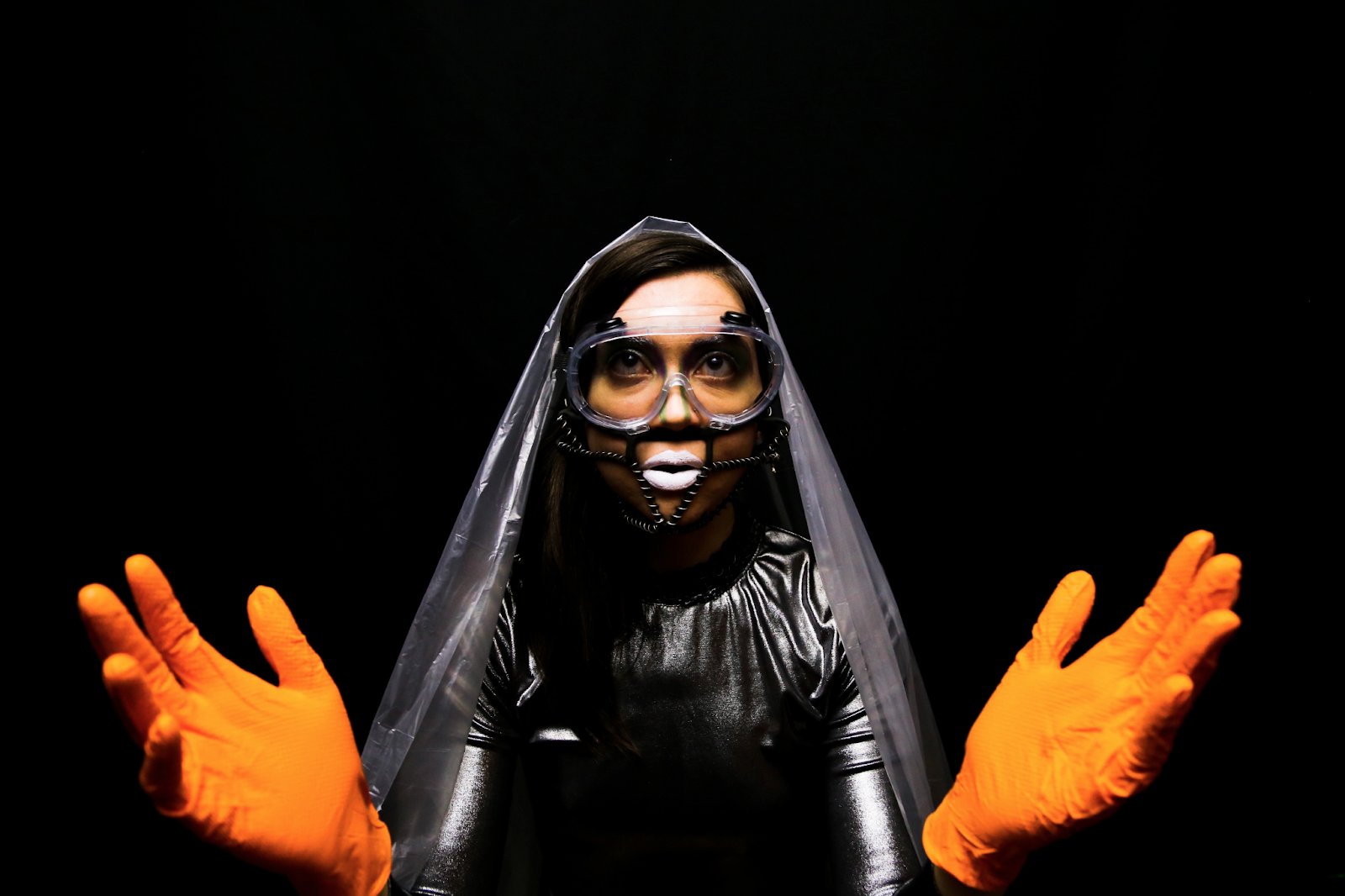
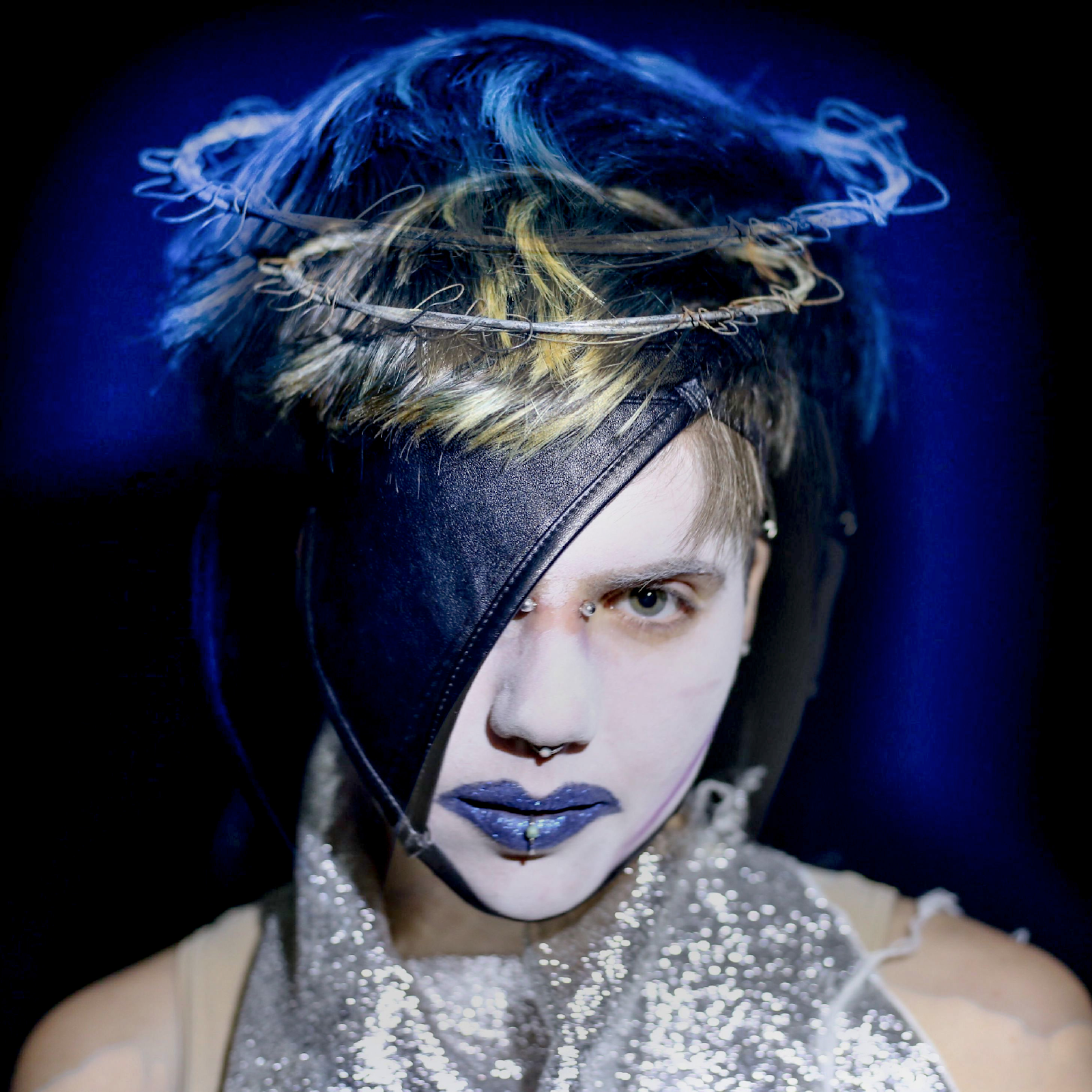
MRS' multifaceted history as a performer includes a role as the house pipe organist at Theatre Bizarre beginning in 2007. “If you go back and look at footage or pictures of the original State Fair Grounds where Theatre Bizarre was, I had my own pipe organ built up into this tree with a crucified skeleton at the top.” When younger, they played pipe organ in a church in Ohio in the midst of teaching themselves how to play piano, ”but I am not saying I was any good at it back then either. I was creative. I was not technically good. And pipe organ is fun because you can just hold B minor for a long time and people are like ‘wooooow!”’
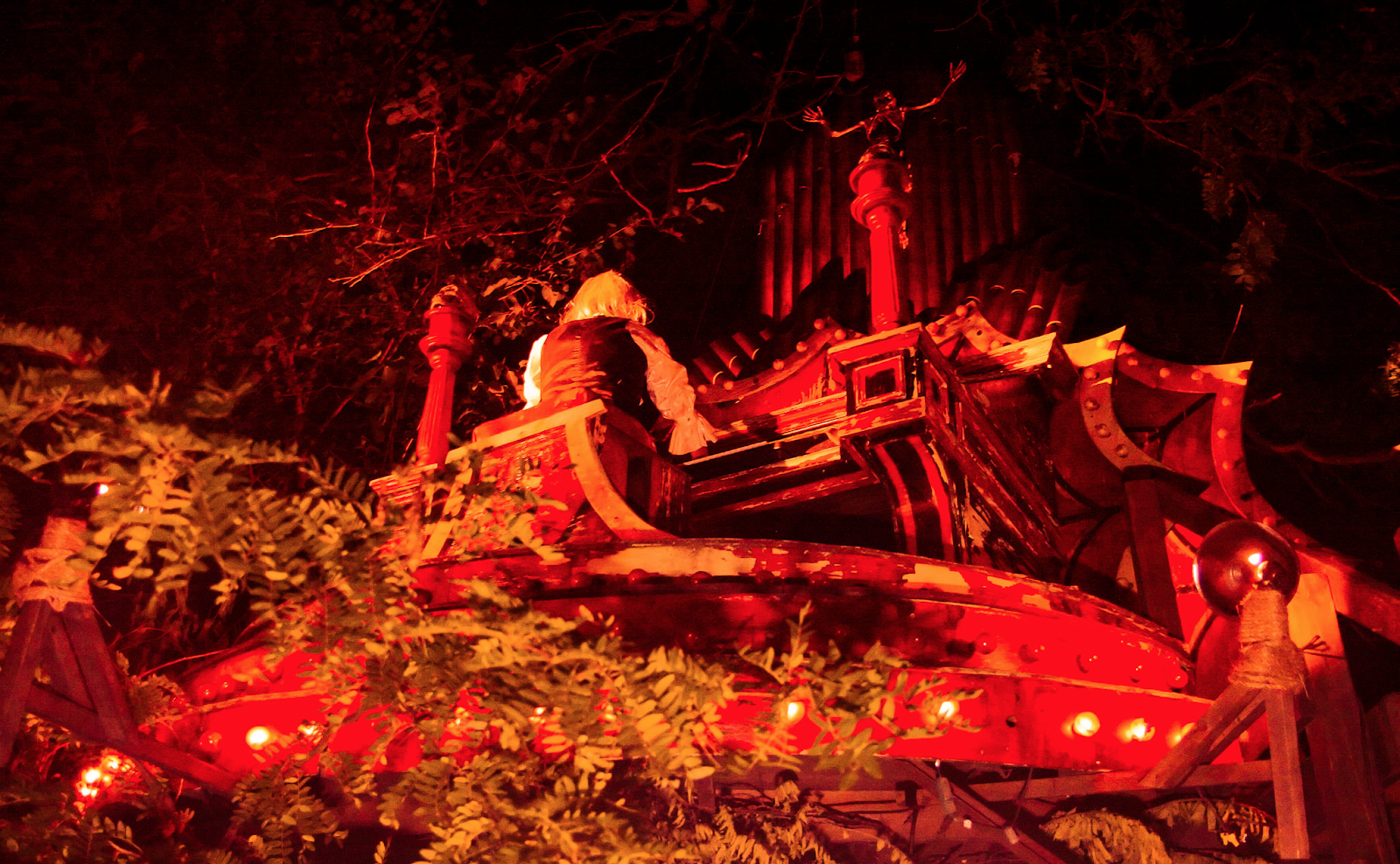
“But, now Crune does something very interesting at Theatre Bizarre, it is my favorite thing I have ever done there; there is a secret room at Theatre Bizarre and this room is a secret absinthe bar. Now, you have to be invited by an absinthe fairy to get into the room. In this room, Walken and I play and the whole night is unscripted, meaning we do not know what we are going to play when we go into the room to perform. There are also two sideshow performers, the No Ring Circus. They have the absinthe in a chamber behind their heads and it goes through a tube and the tube goes into their mouth and out their nose and so the patrons walk in a procession up to the performers holding a cup while the No Ring Circus looks like gods. It is amazing; the absinthe is coming from the chamber, through the tube, through their noses and into the cups for people to drink. Crune scores this live as the patrons were walking up, making it silent, than get really loud once the absinthe started to pour...this performance with our heavy synthesizers, violins and the lush plants, plus the fact that everyone was in Victorian era costumes, all around really made for a perfect setting for our music.”
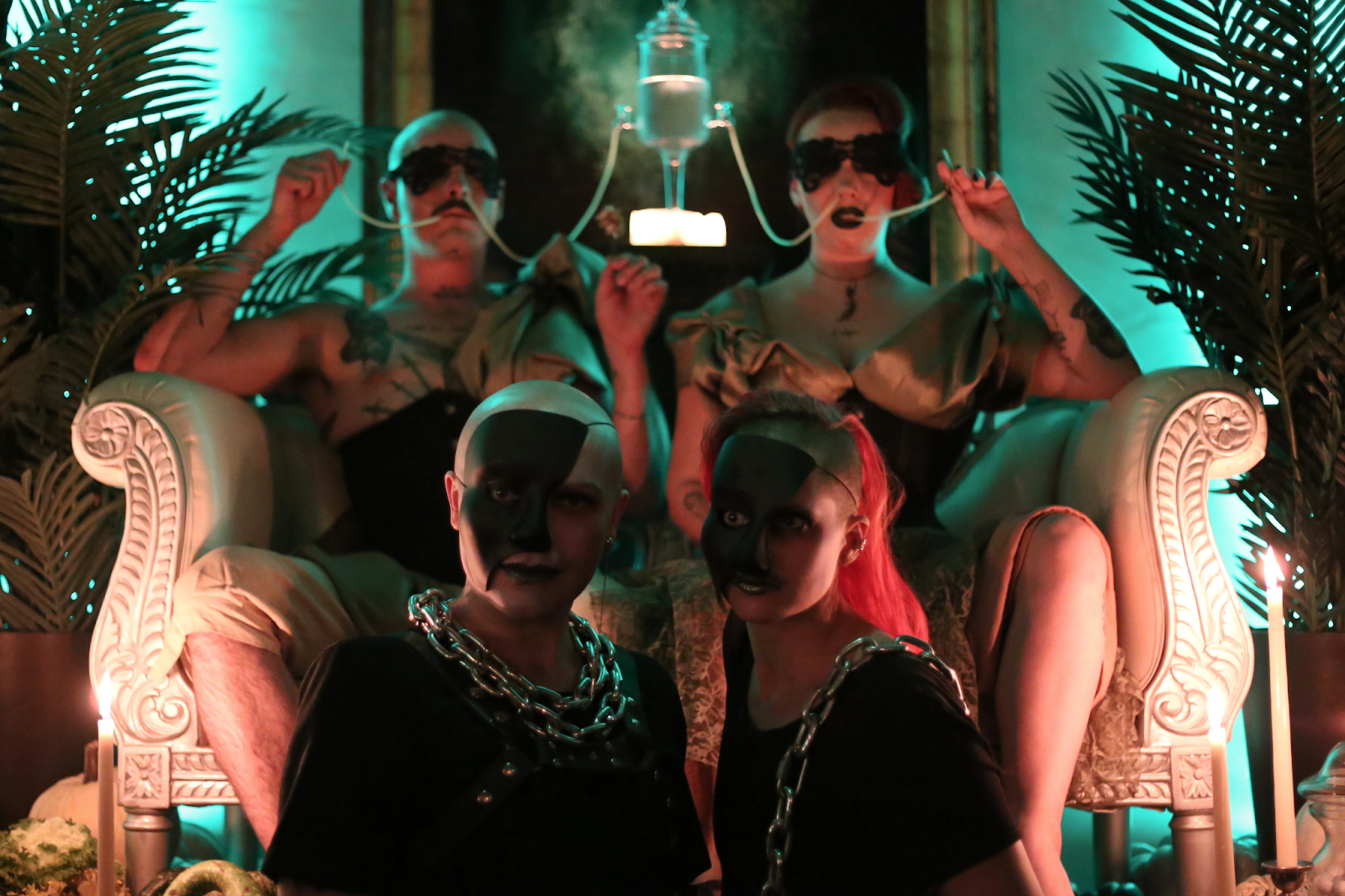
Working amongst and within this ambitiously experimental theatre and performance community of Detroit has been instrumental in the evolution and potency of the work and reception of Crune. “In a lot of ways, Detroit art and Detroit creative communities are very liberating, because it seems like art in Detroit is kind of a way of life for a lot of people and I find that empowering. The fact that there is not your typical capitalist market for creatives here really brings things down to a human level and makes us really think about what it is we are trying to do, and why we are doing it. We’re not doing this for marketing or to necessarily make money, so we have more freedom to look how we want to look, say what we want to say, dress how we want to dress and not in any way worry about it. This level of freedom from capitalist oversight brings creativity to a level of more raw human expression, and this is a very natural thing for humans to do. Just like a flower blooming, it’s absolutely necessary to culture and it is very necessary to strengthen the identities of people who might be marginalized otherwise.”
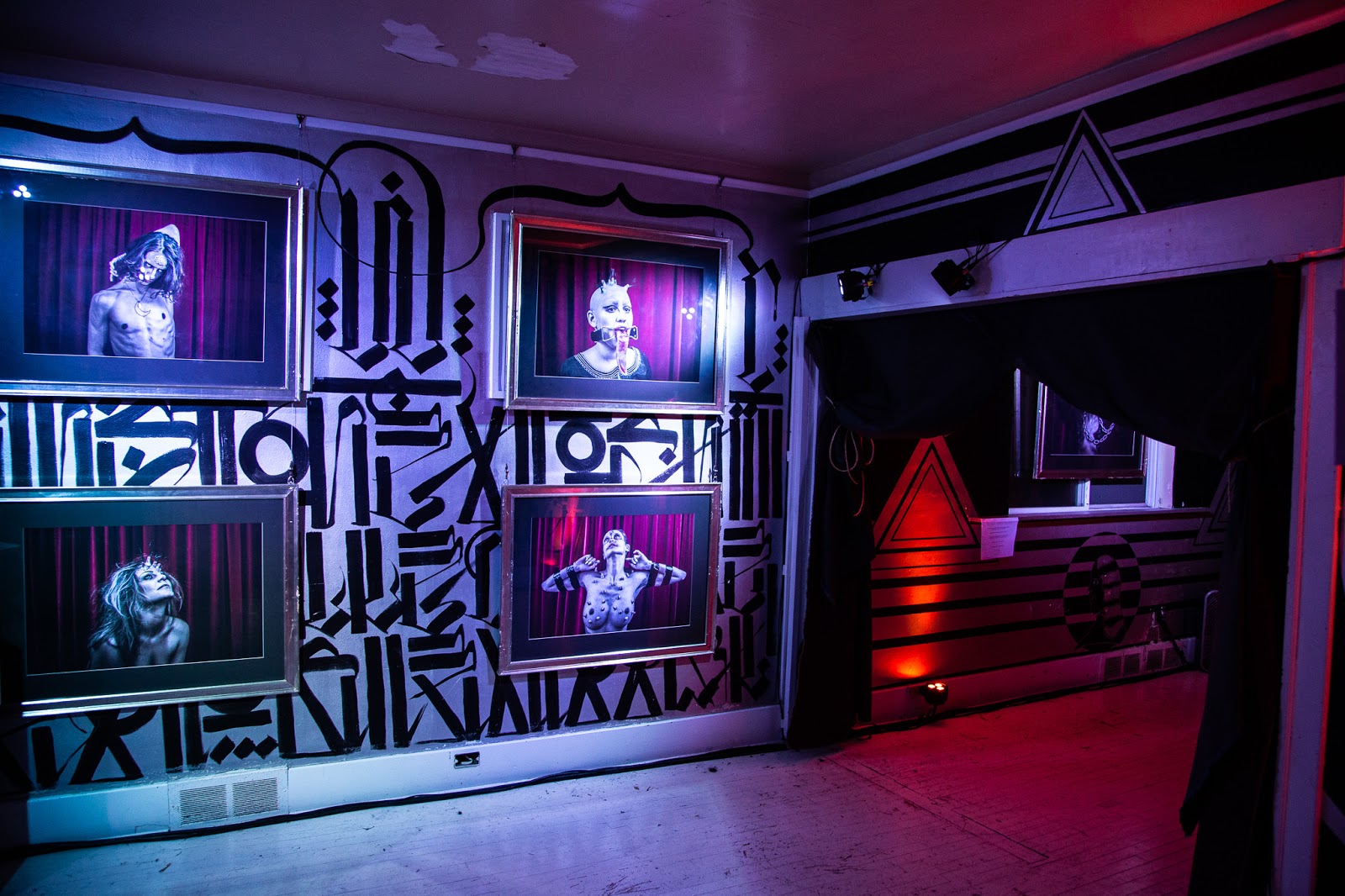
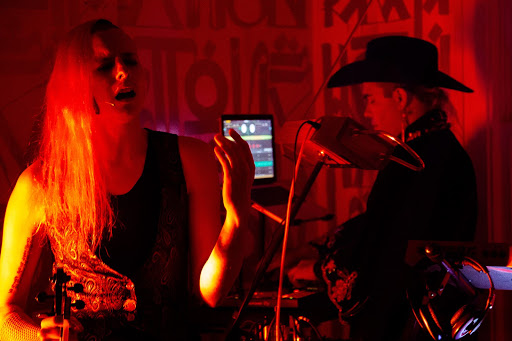
In addition to the music and performances of Crune, they have also established Crune Haus, which is a DIY studio and performance space that functions out of Sound House in Hamtramck. It was opened in order to give people a place to belong and be safe in their expression. “Some people come to our shows in these outlandish, wild costumes and I just get very excited about that. You’re really only going to find things like that in places that are DIY and secret because these places are also vulnerable, they need safety and they need to be more secret to be safe.” DIY spaces in Detroit are fleeting, but you gotta make them. It is important to Crune to have a space to allow this level of freedom for their audience. ”The whole vibe changes when performing live because we are responding to the audience and are able to affect the mood of the room and the people in the room. When recording music alone in the studio, it can be very hard to capture the energy that I would get from a room full of people that are half drunk and trying to fuck each other. Haha, but you know what I mean, like that’s an unmatchable energy.” Crune Haus is one of the spaces in Detroit that is really trying to create a safe space for people who want to get wild and really push the envelope with expression and push the envelope with how they love each other and give people the freedom in those spaces to really be without being observed. "A lot of Crune shows are also planned with astrological significance. We prepare our performances as rituals for healing and empowerment. We believe that music is magic and we very much treat it with that type of reverence."
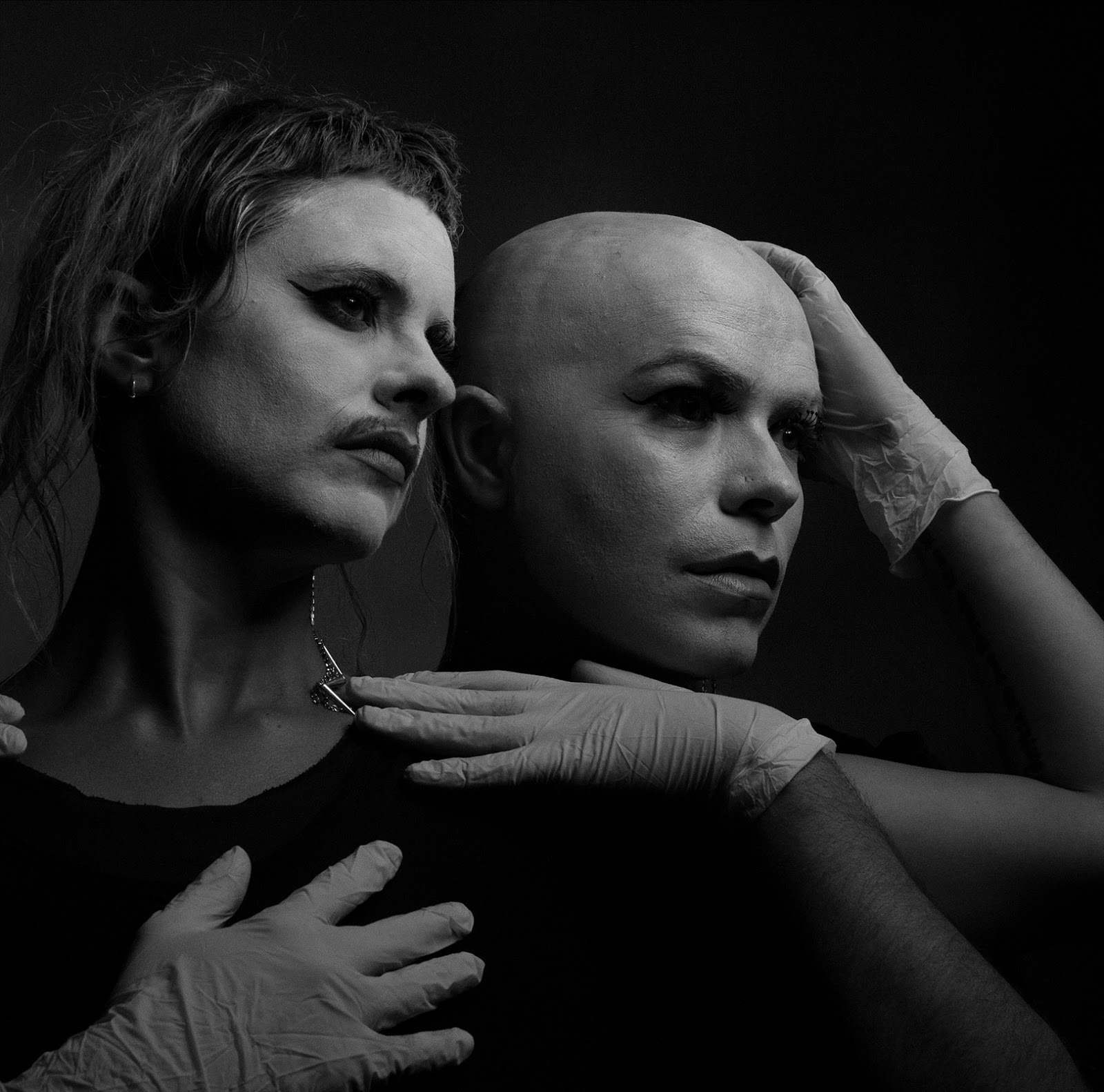
You can find out more about Crune at https://www.crune.net
This text was written based on an interview between MRS and Ashley Cook